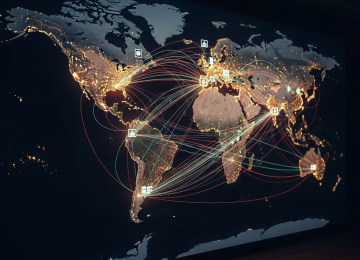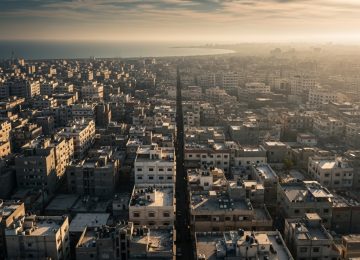Gaza Crisis: 5 Key Developments in 7 Days
The situation in Gaza remains a focal point of intense global scrutiny, with a rapidly evolving landscape demanding constant attention. Over the past seven days, several critical developments have emerged, shaping the ongoing crisis and highlighting the urgent need for de-escalation and humanitarian aid in Gaza. Understanding these shifts is paramount for grasping the complexities of this protracted conflict.
The humanitarian toll continues to be staggering, with reports from various international organizations painting a grim picture of the conditions within Gaza. Access to essential resources like food, water, medicine, and electricity remains severely restricted, exacerbating an already dire situation. The impact on civilians, particularly vulnerable populations such as children and the elderly, is profound and deeply concerning. International calls for unimpeded humanitarian access have grown louder, yet the practical challenges on the ground persist, underscoring the delicate balance between security concerns and the imperative to save lives within Gaza.

One of the most significant developments has been the ongoing diplomatic efforts to secure a ceasefire and facilitate the delivery of essential aid. Numerous countries and international bodies have been engaged in intense negotiations, seeking to broker a resolution that can bring immediate relief to the people of Gaza and pave the way for longer-term stability. These diplomatic endeavors are complex, involving multiple stakeholders with differing interests and priorities. The international community’s commitment to finding a peaceful path forward is evident, but the path to a lasting solution remains fraught with obstacles. The ongoing discussions highlight the interconnectedness of regional security and the broader implications for global stability.
Another critical aspect has been the discourse surrounding the protection of civilians and adherence to international humanitarian law. Allegations of violations on all sides are a matter of grave concern and are being closely monitored by human rights organizations and international legal bodies. The principles of proportionality, distinction, and precaution are central to ensuring the safety of non-combatants, and adherence to these principles is vital in any conflict zone, especially in densely populated areas like Gaza. The accountability for actions that contravene international law remains a key point of contention and a focus of ongoing investigations.
The economic ramifications of the ongoing conflict on Gaza are also considerable. The territory’s already fragile economy, heavily reliant on external aid and trade, faces immense pressure. Damage to infrastructure, disruption of supply chains, and the general climate of instability stifle economic activity and further deepen poverty. Rebuilding efforts and economic recovery will require significant investment and a sustained period of peace and stability, a prospect that appears distant in the current climate surrounding Gaza. The long-term economic viability of Gaza is intrinsically linked to political solutions and a lifting of blockades that have hampered development for years.

Furthermore, the narrative surrounding the conflict and the information ecosystem play a crucial role in shaping global perceptions and policy responses regarding Gaza. Misinformation and disinformation can easily proliferate, making it challenging to ascertain the full picture and to foster informed dialogue. Fact-checking initiatives and responsible reporting are therefore essential in navigating the complexities of the situation in Gaza and ensuring that public discourse is grounded in accurate information. Understanding the diverse perspectives and the historical context is key to appreciating the multifaceted nature of the challenges faced by the people of Gaza. The role of media in accurately portraying the realities on the ground in Gaza cannot be overstated, as it influences international aid and diplomatic interventions.
The geopolitical implications of the Gaza crisis are far-reaching, impacting regional alliances, international relations, and the broader pursuit of peace in the Middle East. The conflict has the potential to destabilize neighboring countries and to draw in external powers, further complicating any resolution efforts. The international community faces the challenge of balancing competing interests while upholding fundamental principles of human rights and international law. The enduring question of self-determination for the Palestinian people, with Gaza as a central component, remains a critical element in any enduring peace. The impact on the broader Arab world and the international community’s response to the unfolding events in Gaza are constantly being analyzed and debated. For more insights into the historical context and ongoing diplomatic efforts, one can refer to reputable sources like Reuters’ coverage of the region, which provides detailed and up-to-date information on the Gaza situation and its broader implications: Reuters Middle East. Our own reporting at FuntimesUS also delves into the human stories emerging from the conflict: Examining the Human Cost of Conflict. The persistent challenges in Gaza underscore the need for sustained international focus and commitment to achieving a just and lasting peace for all involved. The resilience of the people of Gaza in the face of immense adversity is a testament to their spirit, even as the international community grapples with how best to support them.
















